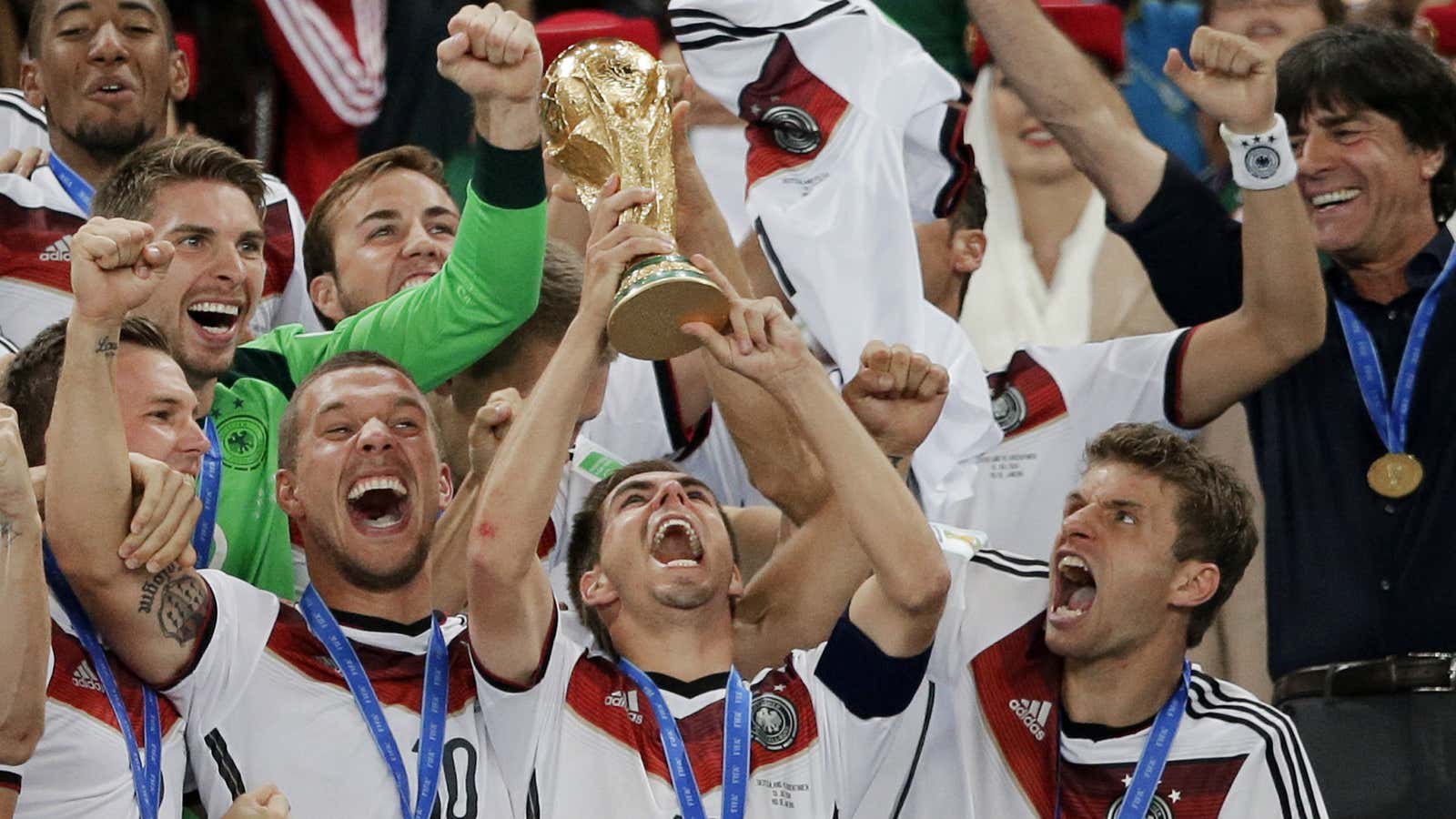The format of the World Cup, soccer’s biggest international competition, will change in 2026 following a unanimous vote by the FIFA Council in Zurich today (Jan. 10).
The new format, the first change to the World Cup since 1998, will expand the number of participating countries from 32 to 48. Currently, countries compete in one of eight groups of four teams followed by four knockout rounds. The expanded tournament will have 16 groups of three teams each followed by five knockout stages.
While the eventual winner will play a total of seven matches (same as the current format), the total number of matches will rise from 64 to 80. As with the current format, though, the 48-team World Cup will also be completed in 32 days.
Like many other candidates that have run for his office, Gianni Infantino, the FIFA president, campaigned on the prospect of expanding the World Cup to make it more inclusive. Many will also view the expansion as a money-grabbing stunt. According to FIFA research, a 48-team World Cup could increase tournament revenue by $1 billion, from a projected $5.5 billion from the 2018 cup in Russia, owing to more lucrative TV broadcast deals and an even larger slew of corporate sponsors.
But the promise—and delivery—of an expanded World Cup is also a FIFA internal politics power play, one which has earned Infantino political capital with the soccer federations of nations that typically face an uphill task making the cut of 32 countries to play at the prestigious soccer tournament.
The tournament’s expansion means that around a fifth of FIFA’s 211 members can participate. To fill the extra slots, Asia and Africa will likely be handed more extra World Cup slots than any other continent. As it turns out, both continents, the largest voting blocs in FIFA, are crucial for presidential hopefuls during elections in which they need to secure two-thirds of the votes on the first ballot.
While the vote may have been unanimous among federations, it has been largely criticized outside the walls of FIFA. The most obvious critique of a 48-team World Cup is that it dilutes the quality of the soccer on offer. Aside from the possibility of watching boring draws or highly imbalanced matches with cricket-like scores, the new convoluted schedule is also a concern. For example, given the prospect of dead-rubber final matches in the group stage, Infantino has suggested penalty shoot-outs during group matches to avoid collusion between teams.
